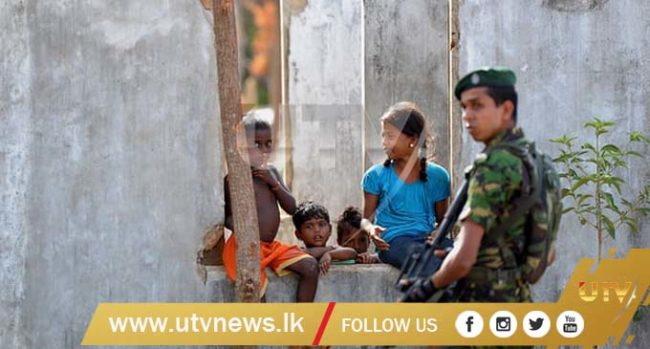(UTV|COLOMBO) – Sri Lanka’s progress towards reform has “virtually ground to a halt” and brutal torture is used with impunity, the UN concludes in a scathing report on the country’s human rights record, The Guardian reported.
The report, which comes three years after the country appeared to have turned a corner in its history by electing a new coalition government, is published on Monday following a UN visit to Sri Lanka at the request of the government. “None of the measures so far adopted to fulfil Sri Lanka’s transitional justice commitments are adequate to ensure real progress,” it says.
Ben Emmerson QC, the UN rapporteur on countering terrorism, met most senior members of the government, military judiciary and prison staff – including inside high security Anuradhapura prison.
Sri Lanka suffered three decades of civil war as Tamil fighters fought for a separate state, culminating in 2015 in the election of a national unity government.
Emmerson concluded on the basis of his visit that progress towards reconciliation and a fair judicial system had virtually ground to a halt. The British barrister said “impunity is still the rule for those responsible for the routine and systemic use of torture, and countless individuals are the victims of gross miscarriages of justice resulting from the operation of the Prevention of Terrorism Act (PTA)“.
He added: “The Tamil community is stigmatised and feels disenfranchised, while the trust of many minority communities that the government is able to deal with all forms of nationalism equally, is eroding.”
Emmerson said he had heard “distressing testimonies of very brutal and cruel methods of torture, including beatings with sticks, the use of stress positions, asphyxiation using plastic bags drenched in kerosene, pulling out of fingernails, insertion of needles beneath the fingernails, use of various forms of water torture, suspension of individuals for several hours by their thumbs, and mutilation of genitals”.
He added: “The pervasive climate of impunity and the lack of accountability for the serious human rights violations that occurred both during the conflict and in the aftermath needs to be addressed and those responsible for human rights violations, sanctioned.”
Although the number of arrests under the PTA was falling, the law was still being used and needed to be repealed as the government had promised in 2015. It was difficult to resist the conclusion that the inertia “reflects the continuing influence of certain vested interests in the security sector, who are resistant to change, and above all, to accountability”.
The definition of terror in the PTA and proposed replacement legislation was too broad, vague and all encompassing, suggesting the PTA in effect allowed for indefinite detention. Emmerson said he had met “a significant number of individuals detained under the PTA whose length of detention ran into double figures in terms of years”.
Figures from the Office of the Attorney-General showed that out of 81 prisoners at the time in the judicial phase of their pre-trial detention, 70 had been in detention without trial for more than five years and 12 had been in detention without trial for more than 10 years.
Many current and former PTA detainees interviewed claimed they had signed documents in a language they did not understand or were asked to sign at the bottom of a blank piece of paper, having been tortured, sometimes in exchange for transfer out of police or security service custody”.
The Sri Lankan government insists it does not condone torture and is committed to ensuring all allegations are investigated, including by the independent Human Rights Commission. It says no evidence of any such allegations have been passed to the commission.
[alert color=”faebcc” icon=”fa-commenting”]Keeping up to date with breaking news while you are on the move is now simple with UTV Alerts [textmarker color=”8a6d3b”]Type REG UTV and send to 77000[/textmarker] on your Dialog, Airtel, or Hutch mobile connection[/alert]
